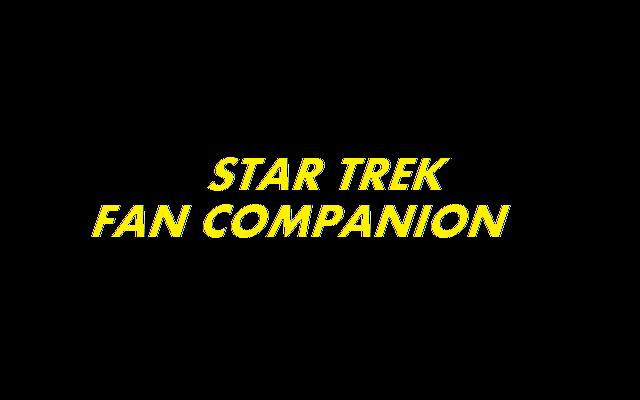"Balance of Terror" is easily one of the most remarkable episodes of the whole series, let alone first season, and since it's the debut of the Romulans, essential to the whole franchise. It's the first time Star Trek got everything right the first shot, too.
So yeah, it's got a lot going for it.
It seems a little wrong, somehow, that the Romulans appeared for the first time before the Klingons. Both have a claim to representing in the series the Cold War conflict. The Romulans, I suppose, represented the more militaristic aspects, while the Klingons the cultural competition, which is certainly odd when you think of Klingons more as warriors and Romulans more for their isolated society. But really, it makes sense. Neither the Klingons nor Romulans actively fought against the Federation during Kirk's time. As presented in this episode, there was a war between the Romulan Star Empire and the Federation about a century before, but that's a long time ago by any standard, future or otherwise.
The crucial thing about the episode is that Kirk doesn't even know what Romulans look like. The past conflict was, of course, conducted entirely aboard starships. That's perhaps how it's easy to understand the difference between the cold warriors of the series. Klingons being more aggressive, they would be much more likely to present a personal appearance, whereas Romulans, who possess such technology as cloaking devices, are much more liable to keep to themselves, despite inclinations that lead to inevitable conflicts with its neighbors.
Anyway. That's nearly beside the point. The episode itself is like a fictional version of the Cuban Missile Crisis, a standoff that could potentially lead to a conflict neither side wants. This leaves Kirk in his most dramatic moment of command yet, which makes the events of "The Corbomite Maneuver" a few episodes earlier pale in comparison, and reveals the true strength of his character. He is a remarkably versatile individual, a real leader. What's surprising is that the enemy matches him in every sense. The enemy as a nuanced individual? That's the true genius of this episode. It dares to make such a case in the middle of the Cold War.
There was perhaps a thaw that had settled in between the real world forces. By the second season, there would in fact be a Russian, an instantly beloved one, serving in Kirk's crew. So it's perhaps not completely surprising that "Balance of Terror" could happen, but it's still the most mature, daring episode of the series yet, what it looks like at its best.
There's a fair bit of melodrama inserted into the story that serves as a little bit of distraction. One of the better aspects of this element, however, is the bigotry Spock faces when the Romulans are revealed to be closely related to his Vulcan ancestors. Seldom enough, Spock's heritage is addressed directly, as well as how it affects his place among a crew made up seemingly entirely of humans. He's the alien in the room, most often viewed by fans as the classic observer but more accurately described as the outsider. A few episodes later, "The Galileo Seven" presents this more directly, but "Balance" gets there first, another reason to consider this one a classic.
franchise * series * essential * character
notable guest-stars:
Mark Lenard
Lawrence Montaigne
Grace Lee Whitney
